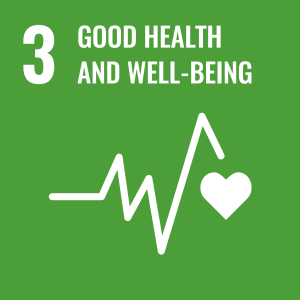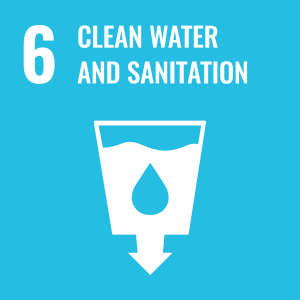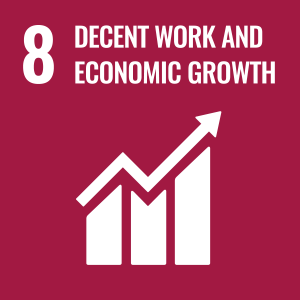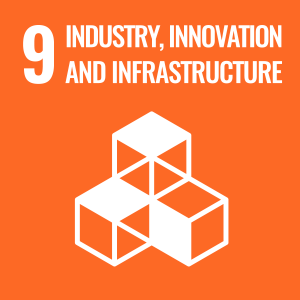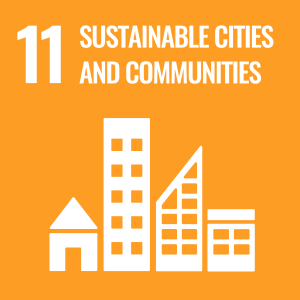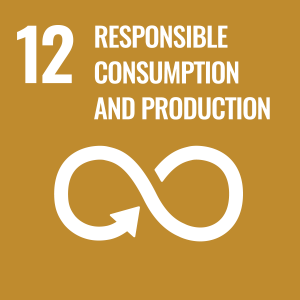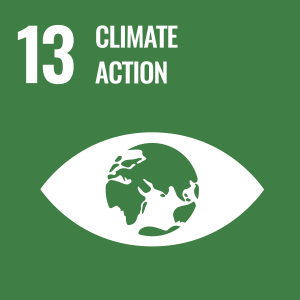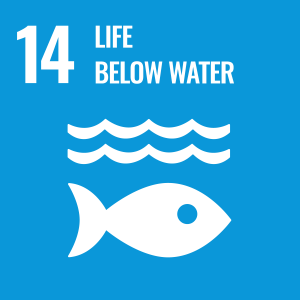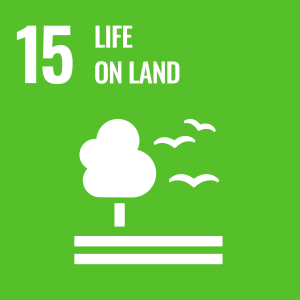Connaissez vous les 17 Objectifs des Nations Unies
pour un Développement Durable ?
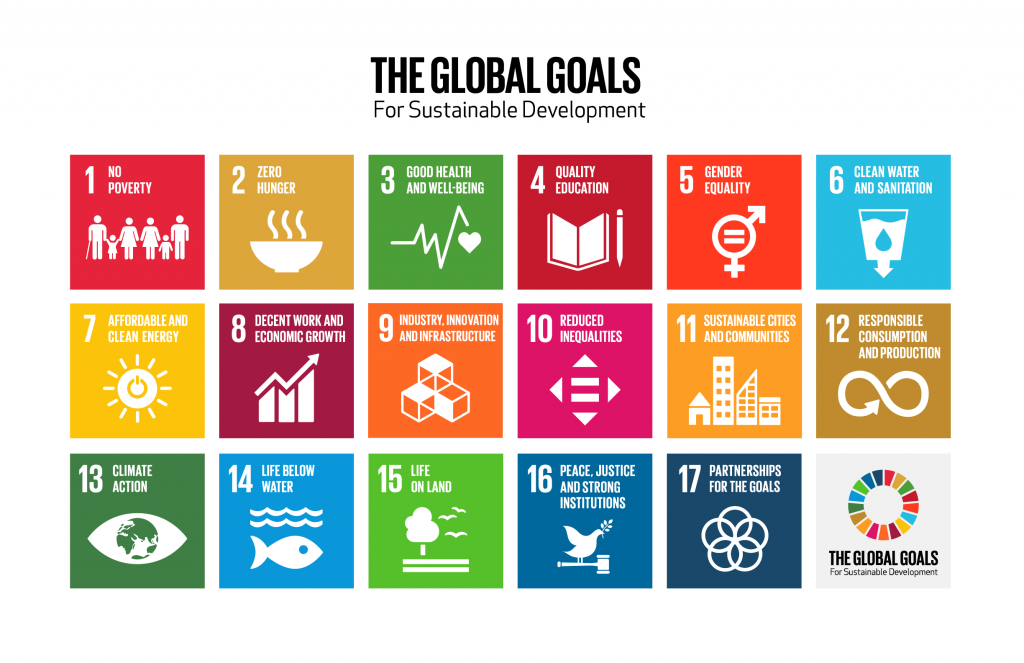
Ils sont un ensemble de 17 objectifs mondiaux adoptés par les Nations Unies en 2015 pour atteindre un avenir durable d'ici 2030. Ils visent à éradiquer la pauvreté, assurer la santé, l'éducation et l'égalité, protéger l'environnement, promouvoir la croissance économique et instaurer des partenariats pour un monde plus inclusif et équilibré.
Engaged For Ocean
s'inscrit positivement dans 10 des Objectifs
Permettre à tous de vivre en bonne santé et promouvoir le bien-être de tous à tout âge
3.9 D’ici à 2030, réduire nettement le nombre de décès et de maladies dus à des substances chimiques dangereuses, à la pollution et à la contamination de l’air, de l’eau et du sol.

Engaged For Ocean® encourage à la gestion des ressources consommées, à la filtration des eaux grises rejetées, à l’utilisation limitée des produits chimiques. Les projets financés par les fonds Engaged For Ocean devront tous répondre à ces critères et certains auront pour objet direct la recherche médicale notamment par la recherche génétique auprès des espèces sous-marines.

Assurer l’accès de tous à une éducation de qualité
4.1 – Assurer à tous l’accès à une éducation primaire et secondaire de qualité.
4.4 – Développer les compétences nécessaires pour le développement durable et l’emploi.
4.7 – Intégrer l’éducation au développement durable et à la citoyenneté mondiale dans les programmes scolaires.
4.A – Créer des environnements d’apprentissage inclusifs et sûrs.
4.C – Renforcer la formation des enseignants pour une éducation de qualité.

Engaged For Ocean s’inscrit pleinement dans le 4e Objectif de Développement Durable (ODD 4) en intégrant l’éducation environnementale au cœur de son programme de labellisation des écoles.
L’initiative sensibilise les élèves à la protection des océans en proposant des modules pédagogiques sur la biodiversité marine, le climat et les écosystèmes marins. Elle contribue à améliorer la qualité de l’éducation en fournissant des ressources éducatives interactives et en accompagnant les écoles dans l’adoption de pratiques écoresponsables, comme la gestion des déchets et la réduction de la pollution plastique.
Engaged For Ocean forme également les élèves aux métiers liés à l’environnement maritime, favorisant ainsi l’acquisition de compétences en développement durable et l’émergence de nouvelles vocations. En parallèle, le programme renforce la formation des enseignants en leur apportant des outils pédagogiques adaptés pour une meilleure transmission des enjeux océaniques.
Garantir l’accès de tous à des services d’alimentation en eau et d’assainissement gérés de façon durable
6.3 D’ici à 2030, améliorer la qualité de l’eau en réduisant la pollution, en éliminant l’immersion de déchets et en réduisant au minimum les émissions de produits chimiques et de matières dangereuses, en diminuant de moitié la proportion d’eaux usées non traitées et en augmentant considérablement à l’échelle mondiale le recyclage et la réutilisation sans danger de l’eau
6.4 D’ici à 2030, augmenter considérablement l’utilisation rationnelle des ressources en eau dans tous les secteurs et garantir la viabilité des retraits et de l’approvisionnement en eau douce afin de tenir compte de la pénurie d’eau et de réduire nettement le nombre de personnes qui souffrent du manque d’eau
6.6 D’ici à 2030, protéger et restaurer les écosystèmes liés à l’eau, notamment les montagnes, les forêts, les zones humides, les rivières, les aquifères et les lacs

Engaged For Ocean® encourage à la filtration des eaux de rejet, des déchets de consommation ainsi qu’à la captation des eaux de pluie pour minimiser les consommations et les pollutions de ruissellements. L’attribution de certains niveaux de labellisation est conditionnée à ces mises en application concrète. Le nettoyage et la captation des polluants dans les eaux de ruissellements des rivières et fleuves représentent notamment un enjeu majeur dans la démarche.
Les projets financés par les fonds Engaged For Ocean devront tous répondre à ces critères et certains auront pour objet direct la distribution, la filtration et la réutilisation de l’eau.
Promouvoir une croissance économique soutenue, partagée et durable, le plein emploi productif et un travail décent pour tous
8.4 Améliorer progressivement, jusqu’en 2030, l’efficience de l’utilisation des ressources mondiales du point de vue de la consommation comme de la production et s’attacher à ce que la croissance économique n’entraîne plus la dégradation de l’environnement, comme prévu dans le cadre décennal de programmation relatif à la consommation et à la production durables, les pays développés montrant l’exemple en la matière.
8.9 D’ici à 2030, élaborer et mettre en œuvre des politiques visant à développer un tourisme durable qui crée des emplois et mette en valeur la culture et les produits locaux.

Engaged For Ocean® vise notamment à promouvoir un tourisme durable en valorisant et en incitant aux engagements locaux et responsables directement liés aux ressources et à l’exploitation de l’Océan.
Cette démarche permet dans le même temps d’unir les équipes autour de valeurs fédératrices et porteuses de sens au-delà de la sphère professionnelle. Les démarches nécessaires à la labellisation doivent conduire à une production et une consommation plus raisonnée et plus durable.
Bâtir une infrastructure résiliente, promouvoir une industrialisation durable qui profite à tous et encourager l’innovation
9.2 Promouvoir une industrialisation durable qui profite à tous et, d’ici à 2030, augmenter nettement la contribution de l’industrie à l’emploi et au produit intérieur brut, en fonction du contexte national, et la multiplier par deux dans les pays les moins avancés.
9.4 D’ici à 2030, moderniser l’infrastructure et adapter les industries afin de les rendre durables, par une utilisation plus rationnelle des ressources et un recours accru aux technologies et procédés industriels propres et respectueux de l’environnement, chaque pays agissant dans la mesure de ses moyens.

Engaged For Ocean® valorise les comportements responsables et les politiques engagées pour l’environnement des industries et des activités liées à l’Océan. La durabilité des ressources conditionne les activités qui maintiennent notre civilisation. La labellisation Engaged For Ocean s’inscrit pleinement dans ce sens d’une économie durable via des activités et des acteurs responsables et engagés.
Les projets financés par les fonds Engaged For Ocean devront tous répondre à ces critères et certains auront pour objet direct l’innovation de secteur dans la préservation des ressources marines.
Faire en sorte que les villes et les établissements humains soient ouverts à tous, sûrs, résilients et durables
11.4 Renforcer les efforts de protection et de préservation du patrimoine culturel et naturel mondial
11.a Favoriser l’établissement de liens économiques, sociaux et environnementaux positifs entre zones urbaines, périurbaines et rurales en renforçant la planification du développement à l’échelle nationale et régionale.

Engaged For Ocean® participe activement à la sensibilisation auprès du plus grand nombre des bonnes pratiques et usages concernant l’Océan, ses attraits et ses ressources. Les labellisés Engaged For Ocean sont majoritairement des activités en rapport direct avec le public, c’est donc une mission pleine et entière de prendre part à l’effort pour changer les habitudes et les attentes. C’est de cette relation particulièrement liée et sensible qu’émerge l’énergie et la conscience de l’importance de préserver le patrimoine naturel et d'amener les infrastructures publiques et privées à évoluer.
Les projets financés par les fonds Engaged For Ocean devront tous répondre à ces critères et certains auront pour objet direct la transition de l’urbanisme, particulièrement littorale.
Établir des modes de consommation et de production durables
12.2 D’ici à 2030, parvenir à une gestion durable et à une utilisation rationnelle des ressources naturelles
12.4 D’ici à 2020, instaurer une gestion écologiquement rationnelle des produits chimiques et de tous les déchets tout au long de leur cycle de vie, conformément aux principes directeurs arrêtés à l’échelle internationale, et réduire considérablement leur déversement dans l’air, l’eau et le sol, afin de minimiser leurs effets négatifs sur la santé et l’environnement
12.5 D’ici à 2030, réduire considérablement la production de déchets par la prévention, la réduction, le recyclage et la réutilisation
12.6 Encourager les entreprises, en particulier les grandes et les transnationales, à adopter des pratiques viables et à intégrer dans les rapports qu’elles établissent des informations sur la viabilité
12.7 Promouvoir des pratiques durables dans le cadre de la passation des marchés publics, conformément aux politiques et priorités nationales
12.8 D’ici à 2030, faire en sorte que toutes les personnes, partout dans le monde, aient les informations et connaissances nécessaires au développement durable et à un style de vie en harmonie avec la nature

Engaged For Ocean® encourage à la gestion durable des stocks et des ressources dans les processus d'approvisionnement, de triage et de recyclage. Tous les labellisés doivent ainsi prendre l’engagement d’une sélection des partenaires commerciaux avec des valeurs et engagements environnementaux.
La transition des modes de consommations et de productions doit être un mouvement global qui intègre à la fois les producteurs et les consommateurs, via les outils de sensibilisations et les engagements des labellisés, Engaged For Ocean participe à un changement des usages et des activités.
Prendre d’urgence des mesures pour lutter contre les changements climatiques et leurs répercussions
13.3 Améliorer l’éducation, la sensibilisation et les capacités individuelles et institutionnelles en ce qui concerne l’adaptation aux changements climatiques, l’atténuation de leurs effets et la réduction de leur impact et les systèmes d’alerte rapide

Engaged For Ocean® a mis au point un système participatif innovant où tout les citoyens peuvent s’informer, découvrir, apprendre et rendre compte de la bonne application des engagements pris par les labellisés.
Cette démarche auto-responsable inclus l’ensemble des citoyens dans la prise de décision et la vérification de l’application. C’est en responsabilisant les citoyens qu’ils rehaussent leurs ambitions et deviennent eux-même ambassadeurs des bonnes pratiques durables.
Conserver et exploiter de manière durable les océans, les mers et les ressources marines aux fins du développement durable
14.1 D’ici à 2025, prévenir et réduire nettement la pollution marine de tous types, en particulier celle résultant des activités terrestres, y compris les déchets en mer et la pollution par les nutriments
14.2 D’ici à 2020, gérer et protéger durablement les écosystèmes marins et côtiers, notamment en renforçant leur résilience, afin d’éviter les graves conséquences de leur dégradation et prendre des mesures en faveur de leur restauration pour rétablir la santé et la productivité des océans
14.3 Réduire au maximum l’acidification des océans et lutter contre ses effets, notamment en renforçant la coopération scientifique à tous les niveaux
14.4 D’ici à 2020, réglementer efficacement la pêche, mettre un terme à la surpêche, à la pêche illicite, non déclarée et non réglementée et aux pratiques de pêche destructrices et exécuter des plans de gestion fondés sur des données scientifiques, l’objectif étant de rétablir les stocks de poissons le plus rapidement possible, au moins à des niveaux permettant d’obtenir un rendement constant maximal compte tenu des caractéristiques biologiques
14.a Approfondir les connaissances scientifiques, renforcer les capacités de recherche et transférer les techniques marines, conformément aux Critères et principes directeurs de la Commission océanographique intergouvernementale concernant le transfert de techniques marines, l’objectif étant d’améliorer la santé des océans et de renforcer la contribution de la biodiversité marine au développement des pays en développement, en particulier des petits États insulaires en développement et des pays les moins avancés
14.c Améliorer la conservation des océans et de leurs ressources et les exploiter de manière plus durable en application des dispositions du droit international, énoncées dans la Convention des Nations Unies sur le droit de la mer, qui fournit le cadre juridique requis pour la conservation et l’exploitation durable des océans et de leurs ressources, comme il est rappelé au paragraphe 158 de « L’avenir que nous voulons »

Engaged For Ocean® s’attache tout particulièrement à l’exploitation et la préservation de l’Océan, sous toutes ses formes. C’est en travaillant de concert en équilibrant les charges d’études et de protection du monde marin entre les acteurs économiques, scientifiques, techniques et les citoyens que peut naître la solution d’un monde durable.
Avec le Label Engaged For Ocean, nous avons créé un sytème circulaire vertueux où tous les acteurs liés à l’océan collaborent pour assurer la durabilité de leurs activités interdépendantes.
Les projets financés par les fonds Engaged For Ocean devront tous répondre aux critères de la préservation directe ou indirecte de l’Océan.
Préserver et restaurer les écosystèmes terrestres, en veillant à les exploiter de façon durable, gérer durablement les forêts, lutter contre la désertification, enrayer et inverser le processus de dégradation des sols et mettre fin à l’appauvrissement de la biodiversité
15.5 Prendre d’urgence des mesures énergiques pour réduire la dégradation du milieu naturel, mettre un terme à l’appauvrissement de la biodiversité et, d’ici à 2020, protéger les espèces menacées et prévenir leur extinction
15.7 Prendre d’urgence des mesures pour mettre un terme au braconnage et au trafic d’espèces végétales et animales protégées et s’attaquer au problème sous l’angle de l’offre et de la demande
15.8 D’ici à 2020, prendre des mesures pour empêcher l’introduction d’espèces exotiques envahissantes, atténuer sensiblement les effets que ces espèces ont sur les écosystèmes terrestres et aquatiques et contrôler ou éradiquer les espèces prioritaires
15.a Mobiliser des ressources financières de toutes provenances et les augmenter nettement pour préserver la biodiversité et les écosystèmes et les exploiter durablement

Engaged For Ocean® veut diffuser le message primordial de la dépendance à l’Océan. Préserver les écosystèmes et la biodiversité sur terre a des conséquences en mer, et réciproquement. Certaines activité de tourisme ou de transport ont cette nuisance d'introduction d'espèce exotique due a de mauvaise pratiques contre lesquelles le label s'enage.
Cette dépendance de notre monde en vase clos est encore trop peu répandue et le Label Engaged For Ocean veut faire prendre auprès de ses labellisés des engagements systémiques qui permettront la survie et l’évolution de notre monde vers un futur plein d’espoir.



